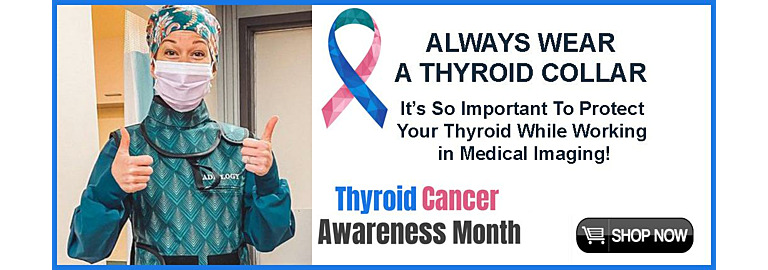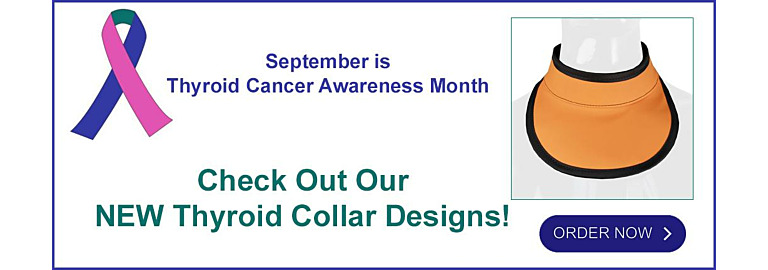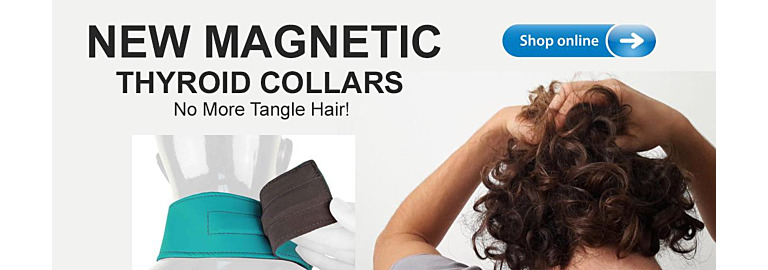Thyroid Cancer Awareness Month - Are you Protecting Your Thyroid?
September is Thyroid Cancer Awareness Month
As a radiology professional, protecting the thyroid gland from scatter and direct radiation is crucial. The thyroid is a butterfly-shaped gland at the base of the throat that uses iodine to produce hormones regulating heart rate, body temperature, metabolism, and calcium levels in the blood. Given the risk factors for thyroid cancer, including radiation exposure and family history, it’s important to minimize these risks using thyroid collars.
Thyroid shields are highly effective in reducing the risk of thyroid cancer from radiation exposure during procedures. They can decrease the effective dose by 2.5 times and cut total exposure by nearly 50%. To ensure adequate protection, these shields should have at least 0.5-mm lead equivalent thickness for neck and thyroid protection.
However, some healthcare professionals wear thyroid shields loosely or not at all. Wearing the shield snugly is essential for optimal protection. Regular inspections for damage are also important, much like those conducted for aprons.
Although the exact risk of scattered radiation to the thyroid is still unknown, protecting this gland is vital due to its susceptibility to scatter radiation when a shield is not worn. For more detailed information, refer to the American Thyroid Association's Policy Statement on Thyroid Shielding During Diagnostic Medical and Dental Radiology.
Z&Z Medical offers a variety of thyroid collar styles designed for maximum protection and comfort in the field of radiology, including a magnetic thyroid collar that prevent hair tangling.
Visit our website today to order your own personal thyroid collar.



